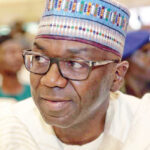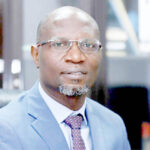Readers, today I take the liberty to share with you the remarkable story of Dadasare, a Fulani lady who was the live-in companion of the legendary Dr Rupert East, the founder of the Gaskiya Corporation, Zaria. The title of this piece, more or less, is taken from Dadasare’s memoir. She completed writing the memoir in 1975, but for some inexplicable reasons was not able to publish it till she died in 1984.
The manuscript survived and was thought lost for many years until found through some dogged research work by Dr Aliyah Adamu Ahmad, a leading literary historian, now at Sokoto State University. The book was, at last, published in 2019.
The book tells the riveting story of an 11-year-old Fulani girl who was kidnapped in 1929 from Gola near Gombi now in Taraba State and was handed over to a British colonial officer to live with him. When he shortly left Nigeria Dadasare found a home in Zaria with another colonial officer, Dr Rupert East, in circumstances that were quite unusual for the period.
Dr East came to Nigeria in the 1920s as a colonial officer in the Education Department. He taught at Katsina College where his students included the future Premier of Northern Nigeria, Sir Ahmadu Bello, and Nigeria’s Prime Minister Tafawa Balewa. Rupert East would in due course become more well-known as the foremost promoter of the Hausa language and its literature.
In 1931 he was appointed to head the Translation Bureau, an agency based in Zaria, established to provide reading materials for the new western schools throughout the North. It was while there that he mentored the first generation of Hausa language writers and published their works; Abubakar Imam (Ruwan Bagaja, Magana Jari Ce), Abubakar Tafawa Balewa (Shaihu Umar), John Tafida Umar (Jiki Magayi) Bello Kagara (Gandoki) Gwarzo Muhammad (Idon Matanbayi) and Nuhu Bamalli (Bala da Babiya).
Dadasare was to feature closely in all the writing activities of Rupert East. She became his consort and assistant of sorts. He tutored her in the English way of life and simultaneously posted teachers from the bureau to coach her at home. When the Gaskiya Corporation was formed under the tutelage of Dr East and it started publishing its first Hausa language weekly, the Gaskiya Tafi Kwabo in 1939, it was inevitable that Dadasare would work closely with Abubakar Imam the Editor. She collaborated closely with him and Nuhu Bamalli who took over subsequently. She wrote on topical issues in the paper, particularly on women’s issues.
Her memoir acknowledged the debts owed to both Abubakar Imam and Nuhu Bamalli for the good groundings she got in all aspects of writing. It was from what she learned from them that she was able to produce pamphlets and other material for adult education among women. She also learned to touch-type and became invaluable to Dr East for typing reports and letters for him. She also became a diarist recording all the mundane goings-on in the home of Dr Rupert East.
Those were the years she called ‘the Years of Ripening’. During the Second World War, she became a volunteer nurse in the Wusasa Mission Hospital where she was exposed to the evangelical influence of the missionaries. She became a Christian but some years after retraced her steps. Her role in the hospital led to an opportunity for her to travel to the UK for a six-year nursing and midwifery course. By the time she returned to Nigeria Dr East had retired and left Nigeria to marry and settle in his birthplace. Dadasare was left to move on with her life.
Though a trained nurse, the regional government deemed it necessary to deploy her to a special section for adult education for women with field headquarters in Zaria. Even though she reported to the office, in 1956, with reluctance, that’s where Dadasare found her niche. She flung herself into the job with gusto, touring all over the North to find avenues of reaching women in purdah to enlighten them. She caused to establish literary classes and hygiene and public enlightenment centres in many towns and villages. The centres are the precursors of what we know today as skills acquisition centres.
She also travelled widely within the country and even up to Garoua in Cameroon Republic. She had further international exposure by travelling to the US and having a considerable stay there. She was on the pilgrimage to Makkah in 1960 and was fortunate to travel in the same plane with the party of the Sardauna of Sokoto, the Premier of Northern Nigeria. She devoted a whole chapter of the memoir detailing her stay in Makkah and what it meant to her spiritually.
Dadasare eventually left Zaria in 1977 and retired to her ancestral village Gola to live the rest of her life. She has left us with a memoir that is evocative of the time she lived, and she never spared any detail of her experience and insight. In the words of Dr. Aliyah Adamu Ahmed, ‘it is an amazing piece of literary work. Written in simple diction, it reveals a lot about life in those early days of colonial and post-colonial Northern Nigeria, especially one woman’s struggle to make not only her life but also the life of her compatriots meaningful’.
 Join Daily Trust WhatsApp Community For Quick Access To News and Happenings Around You.
Join Daily Trust WhatsApp Community For Quick Access To News and Happenings Around You.

